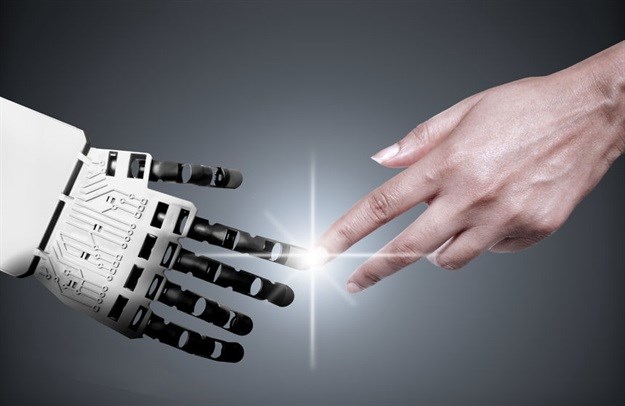Humans dominate the planet, not because we're the biggest and the strongest, but because we're the smartest. So it's understandable that the prospect of intelligence greater than our own is unsettling. Indeed, AI could help deal with many of the world's problems we've been unable to solve ourselves, but isn't it conceivable it might also begin to see us not just as irrelevant, but possibly even as a detriment to the planet?
The idea of machines replacing human beings sounds exciting. It appears to save us from all the pain. But is it really so wonderful?

Working enthusiastically with a sense of belonging and spirited dedication does not exist in the world of AI. Imagine robots working in hospitals. Do you see them showing the care and concern that humans would? Do you think online assistants (avatars and chatbots) can give the kind of service that a human being would?
Concepts such as care, understanding, and togetherness cannot be understood by machines, which is why, no matter how intelligent they become, they will always lack the human touch.
Artificial Intelligence gives rise to many concerns and questions. For example, will online face recognition destroy our privacy? What impact will automated robots have on employment? Will self-driving cars bring moral decision-making to a stop?
If robots begin to replace humans in every field, it will eventually lead to unemployment. People will be left with nothing to do. So much empty time may result in its destructive use. Thinking machines will govern all the fields and populate the positions that humans occupy, leaving many thousands of people jobless.
Also, due to the reduced need to use their intelligence, lateral thinking and multitasking abilities of humans may diminish. With so much assistance from machines, if humans do not need to use their thinking abilities, these faculties will gradually decline.
The Universal Basic Income has been placed on the radar this year, mostly because everyone is asking, "What will happen when the machines take our jobs?"
Flux Trends presentations include the concept of 'the great displacement', the term now used for when humans lose their jobs to machines. (Usually those jobs get displaced into a new service industry that mushrooms to service the old industry.)
With the heavy application of AI, humans may become overly-dependent on machines, losing their mental capacities.
If the control of machines goes in the wrong hands, it may cause destruction. Machines won't think before acting, which means they may be programmed to do the wrong things, or for mass destruction.
There is a fear of robots superseding humans. Ideally, human beings should continue to be the masters of machines. However, if things turn the other way round, the world will turn into chaos. Intelligent machines may prove to be smarter than us; they might enslave us and start ruling the world.
Yes, AI has several pros but it has many disadvantages as well. Its benefits and risks should be carefully weighed before employing it for human convenience.
The following could become a reality in 2017:
Managing and monitoring AI
Many of the tech giants behind the new wave of AI are well aware that it scares people that these fears must be addressed, and that AI needs to be managed and monitored.
In response, Amazon, Facebook, Google’s DeepMind division, IBM, and Microsoft have founded a new organisation called the Partnership on Artificial Intelligence to Benefit People and Society.
“Every new technology brings transformation, and transformation sometimes also causes fear in people who don’t understand the transformation,” Facebook’s director of AI Yann LeCun said during a recent press briefing dedicated to the new project. “One of the purposes of this group is really to explain and communicate the capabilities of AI, specifically the dangers and the basic ethical questions.”
As Stephen Hawking recently said, the creation of powerful AI will be "either the best, or the worst thing, ever to happen to humanity".
